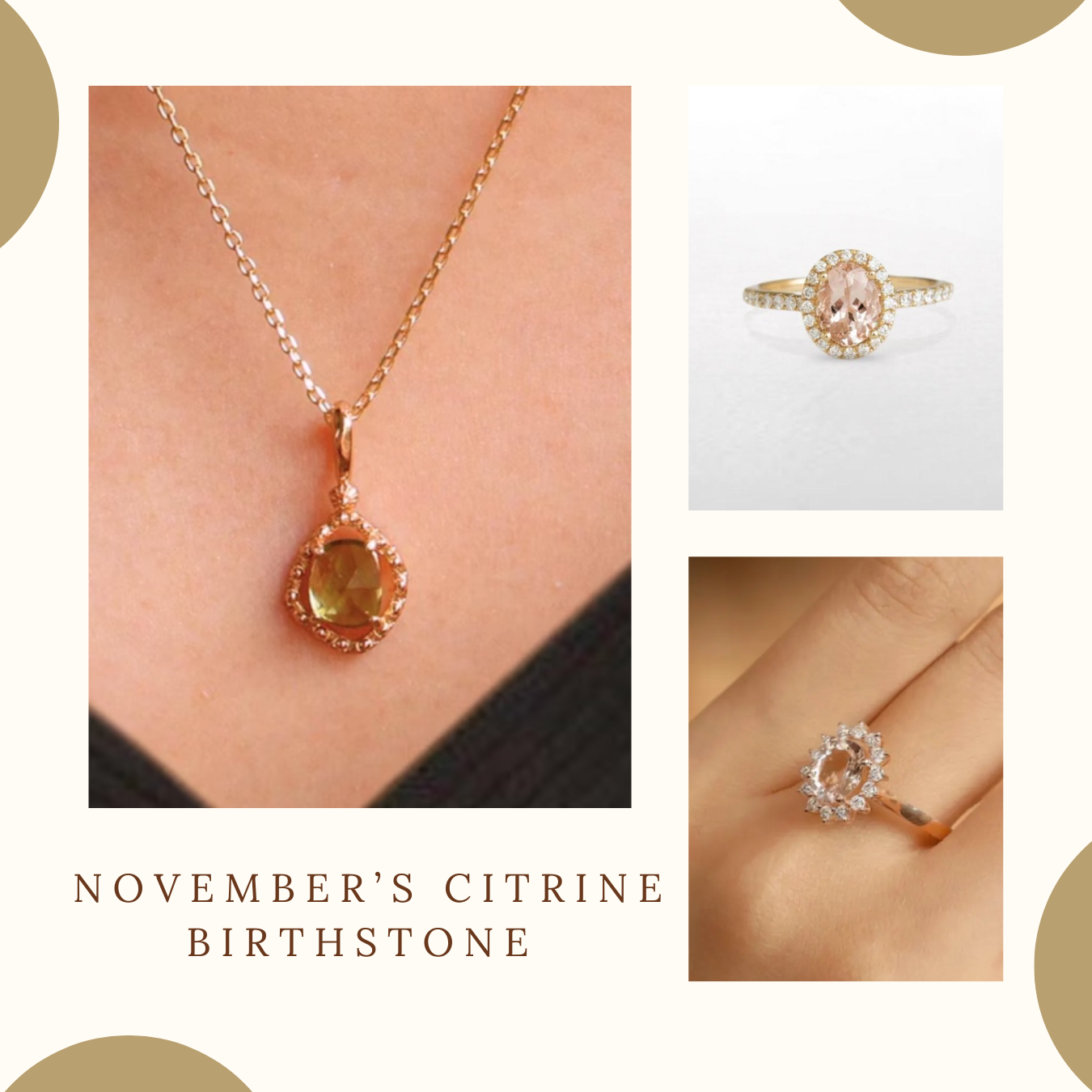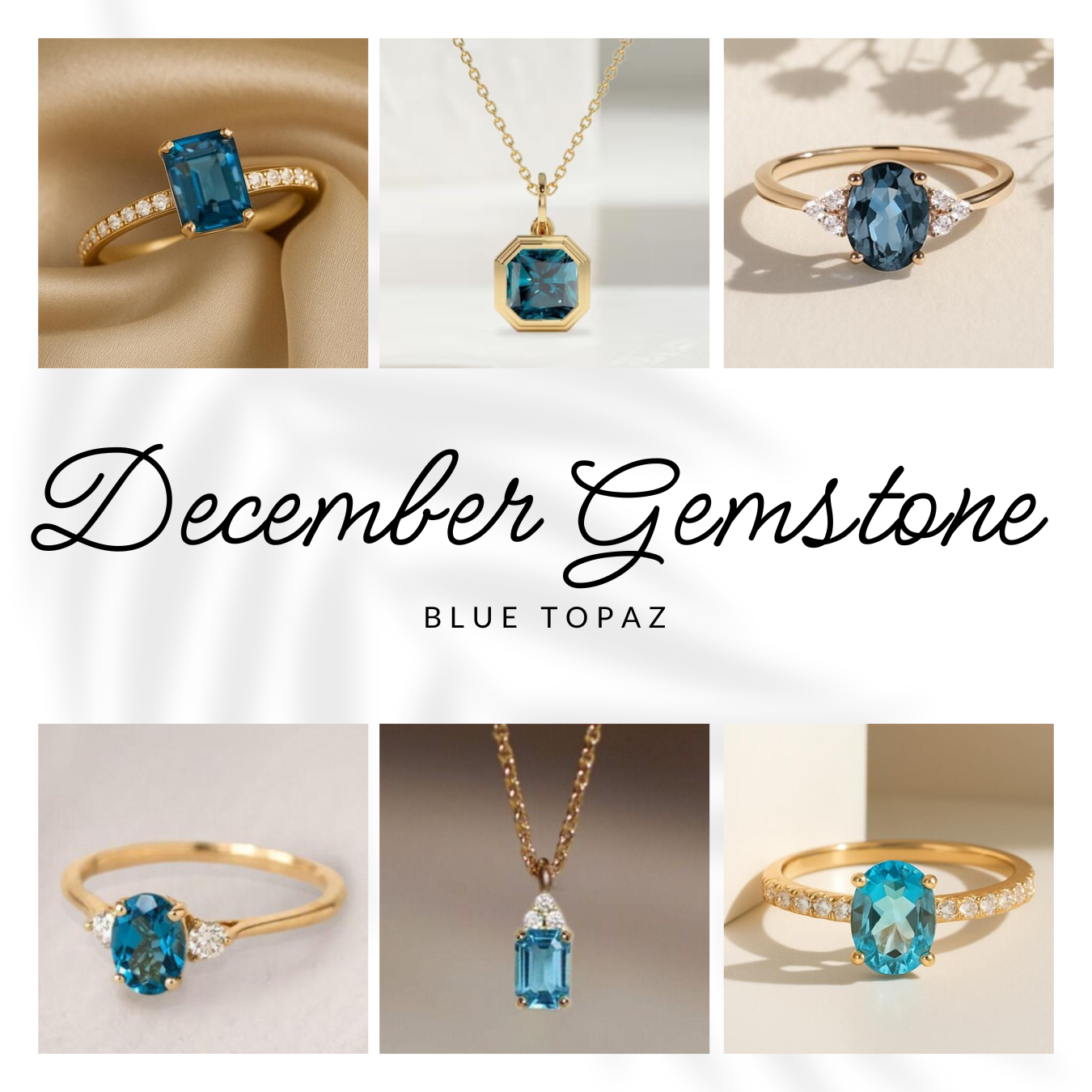Golden like autumn sunlight and glowing with joy, citrine is the birthstone for the month of November. Known for its warm color and uplifting energy, citrine has been treasured for centuries not only for its beauty, but also for its powerful symbolism and unique history.
Whether you're celebrating a November birthday or simply drawn to radiant, golden gems, citrine is a gemstone that inspires positivity, creativity, and timeless style.
What Is Citrine?
Citrine is a variety of quartz that ranges in color from pale yellow to rich amber and burnt orange. Its name comes from the French word “citron,” meaning lemon, a nod to its sunny hue. Naturally occurring citrine is relatively rare, which makes it especially prized by gem collectors and jewelers alike.
Most of the citrine used in modern jewelry is created by heat-treating amethyst or smoky quartz a process that brings out the stone’s rich golden color while maintaining its durability and clarity.
Citrine Meaning & Symbolism
Citrine is often referred to as the “Stone of Light” or the “Sunshine Stone” due to its association with joy, positivity, and energy. Throughout history and across cultures, citrine has been linked to a variety of uplifting meanings:
-
Happiness & Optimism – Brings joy and brightens the wearer’s mood.
-
Abundance & Wealth – Known as the Merchant’s Stone, believed to attract prosperity and success.
-
Creativity & Confidence – Stimulates imagination and encourages self-expression.
-
Cleansing & Protection – Said to dispel negative energy and promote emotional balance.
These qualities make citrine not only a beautiful gemstone but also a thoughtful, symbolic gift especially for new beginnings or personal milestones.
A Brief History of Citrine
Citrine has been used in jewelry and decorative arts for thousands of years. In ancient Greece, citrine was carved into intaglios and used in jewelry as far back as 300 BCE. During the Roman Empire, it was worn as a talisman to guard against evil thoughts and snake venom.
In the Victorian era, citrine gained popularity in elaborate brooches and Scottish jewelry. It was later embraced by Hollywood in the Art Deco period, when large citrine cocktail rings became a glamorous symbol of the era.
Today, citrine is beloved for both its historic elegance and modern versatility, making it a favorite among designers and wearers around the world.
Citrine in Jewelry
Citrine’s glowing golden hue makes it incredibly versatile in fine jewelry. It pairs beautifully with a variety of metals rose gold for romantic warmth, yellow gold for a rich, classic look, or white gold and sterling silver for bright contrast.
Popular Styles Include:
-
Citrine Solitaire Rings – A striking and meaningful statement piece.
-
Layered Citrine Necklaces – A modern way to wear warmth and light.
-
Citrine Stud Earrings – Perfect for everyday wear with a touch of sunshine.
-
Vintage-Inspired Cocktail Rings – Bold citrine gems in intricate settings.
Because citrine is both affordable and durable (ranking 7 on the Mohs hardness scale), it’s ideal for daily wear and custom jewelry designs.
Gifting Citrine: A Symbol of Light
Citrine makes a meaningful and unique gift for:
-
November birthdays
-
13th wedding anniversaries
-
Celebrating new jobs, milestones, or fresh starts
-
Spreading positivity or commemorating personal growth
Its symbolism of light, joy, and abundance makes it the perfect gift for anyone who brings sunshine into your life or who needs a little more of it.
Citrine Care Tips
Citrine is relatively easy to care for, but like all fine jewelry, it benefits from gentle handling:
-
Cleaning: Use mild soap, warm water, and a soft brush.
-
Storage: Store separately to avoid scratches from harder stones.
-
Avoid: Prolonged exposure to direct sunlight or extreme heat, which may cause fading.
Discover the Glow of Citrine
Whether worn as a personal talisman or gifted to a loved one, citrine brings warmth, optimism, and timeless elegance to every jewelry piece it graces. It’s more than a birthstone it’s a celebration of light, abundance, and life’s golden moments.




